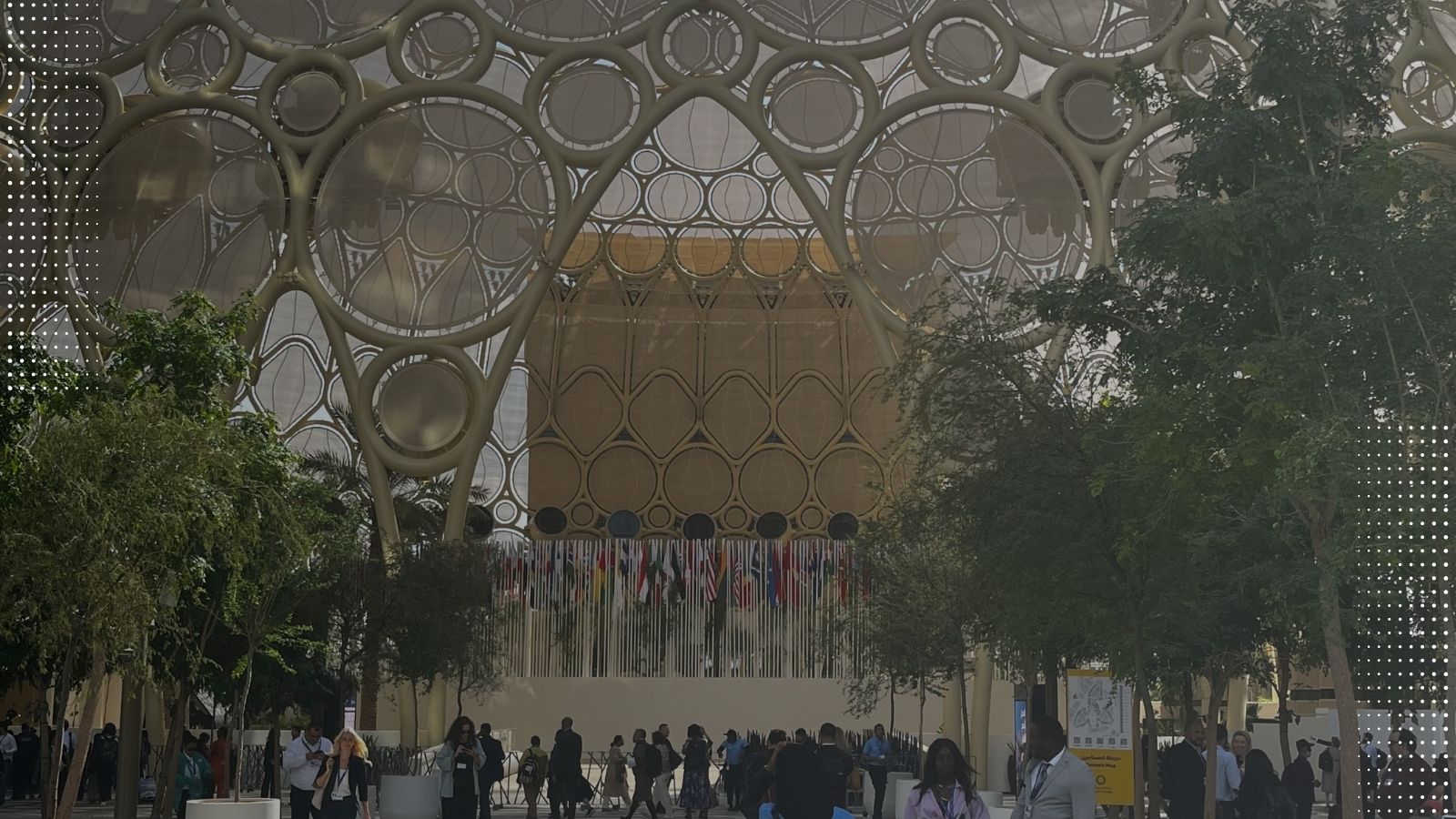Four days in and the UAE is making this COP business look easy. Loss & damage signed off, cash rolling in, hundreds of world leaders and a wedge of pledges. To cap it off, even ExxonMobil and Saudi Aramco are signing off on climate deals. Who needs two weeks when 48 hours will do? This does appear to be the core communications strategy of the hosts. Blind onlookers with a dazzling array of deals – a diplomatic ‘shock and awe’ to distract from the details behind the headlines.
Sadly (perhaps for us all) this will not be a 72-hour sojourn in the sun. As always, the key to climate talks is to read the small print, footnotes and between the lines. What all these commitments have in common is that they are voluntary, vague and don’t require an actual reduction in greenhouse gas emissions. To quote Guterres, “we cannot save a planet with a firehose of fossil fuels.”
Yesterday’s Oil and Gas Decarbonization Charter is a good example. Impressive headline with 50 oil majors signed up, but very little substance – only 40% of the market covered, no binding agreements, no concrete commitment on clean energy spending, largely rehashing old pledges and covers a small proportion of overall emissions. Indeed Exxon boss Darren Woods, fresh from signing up to the charter that stressed the importance of investing in the energy system of tomorrow, gave an interview to the FT saying that discussions “had put way too much emphasis on getting rid of fossil fuels, oil and gas,” insisting he had a ‘plan’ that involved betting big on CCS, a technology that captures 0.1% of global emissions, posts low capture rates and is hugely expensive.
Side deals at COP– US joins Powering Past Coal Alliance – Colombia joins Fossil Fuel Non Proliferation Treaty – France, Spain and Barbados launch plan for new taxes on oil & gas profits/shipping to invest in solutions – US VP Kamala Harris pledges $3bn to Green Climate Fund (subject to funds) – $450m pledged by philanthropy to tackle super-pollutants – US follows through on plan to introduce methane rule to cut emissions from oil and gas – Top 10 polluters Kazakhstan & Turkmenistan join the Global Methane Pledge, along with Angola, Kenya and Romania. |
The same can be said of the Loss and Damage Fund. Symbolically important it may be, but without serious backing – climate damage costs hundreds of billions a year – it remains toothless. Indeed at $650m, “recent contributions to the L&D Fund at COP28 are more or less equal to the annual (oil-fuelled) net salaries of the top nine football players in the Saudi Pro League”, said IEA climate policy analyst Luca Lo Re.
Global Stocktake
The Global Stocktake (GST) strand of talks is where COP28 really will be won or lost. The two-year UN review of climate progress was clear – emissions need to be halved by 2030 and fossil fuel use needs to be slashed. This negotiations status tracker underlines how far countries are from agreement. That’s not unusual three days in, but it underlines COP28 will be a heavy lift. A new GST text is due on Sunday. With world leaders departed, ministers now arrive ready to roll up their sleeves knowing this text forms the negotiated outcome here in Dubai.
Heads of state and high-level negotiators took part in a GST ‘mitigation’ session on Saturday and here’s a taster of what countries were saying:
– US: backs tripling renewables, a rapid phasedown of unabated fossil fuels, and tackling deforestation
– China: not keen on EU’s ‘unilateral’ trade measures (CBAM)
– Russia: natural gas is a key low carbon transition fuel, all energy must be on the table
– Norway: backs phaseout of ‘unabated’ fossil fuels and tripling renewables
– Gambia: poorer nations need tech and cash to invest; backs no more fossil fuel investments
– Vanuatu: fossil fuel investments should be canned and cash redirected to renewables
– Portugal: wants a phaseout of fossil fuels & decarbonised energy system by 2040
– Chile: backs the tripling renewables target and a ‘rapid decrease’ in fossil fuel use
Under the Paris Agreement, progress is analysed every five years and parties agree on how they will close any remaining gap between what’s been done and what’s required. That gap is huge, and by early 2025 each country will have to come back with a plan to close the gap. To do so, a set of shared goals and approaches needs to be established, agreed and written down in a decision text from this COP.
In steeling themselves for the tough days ahead, negotiators would do well to head the words of Pope Francis, blasting world leaders for their lack of leadership in a speech to COP on Saturday. “Demonstrate the nobility of your role and the dignity of the service that you carry out”, he said. “In the end, the purpose of power is to serve. It is useless to cling to an authority that will one day be remembered for its inability to take action when it was urgent and necessary to do so. History will be grateful to you.”





